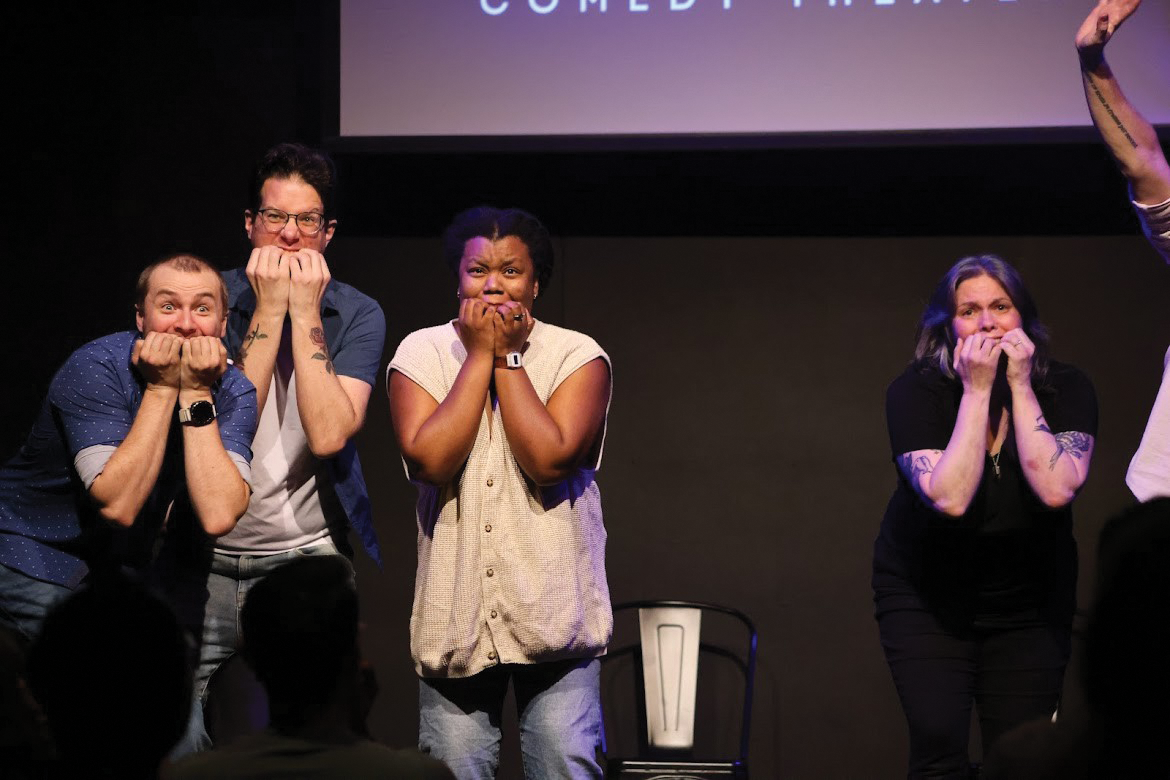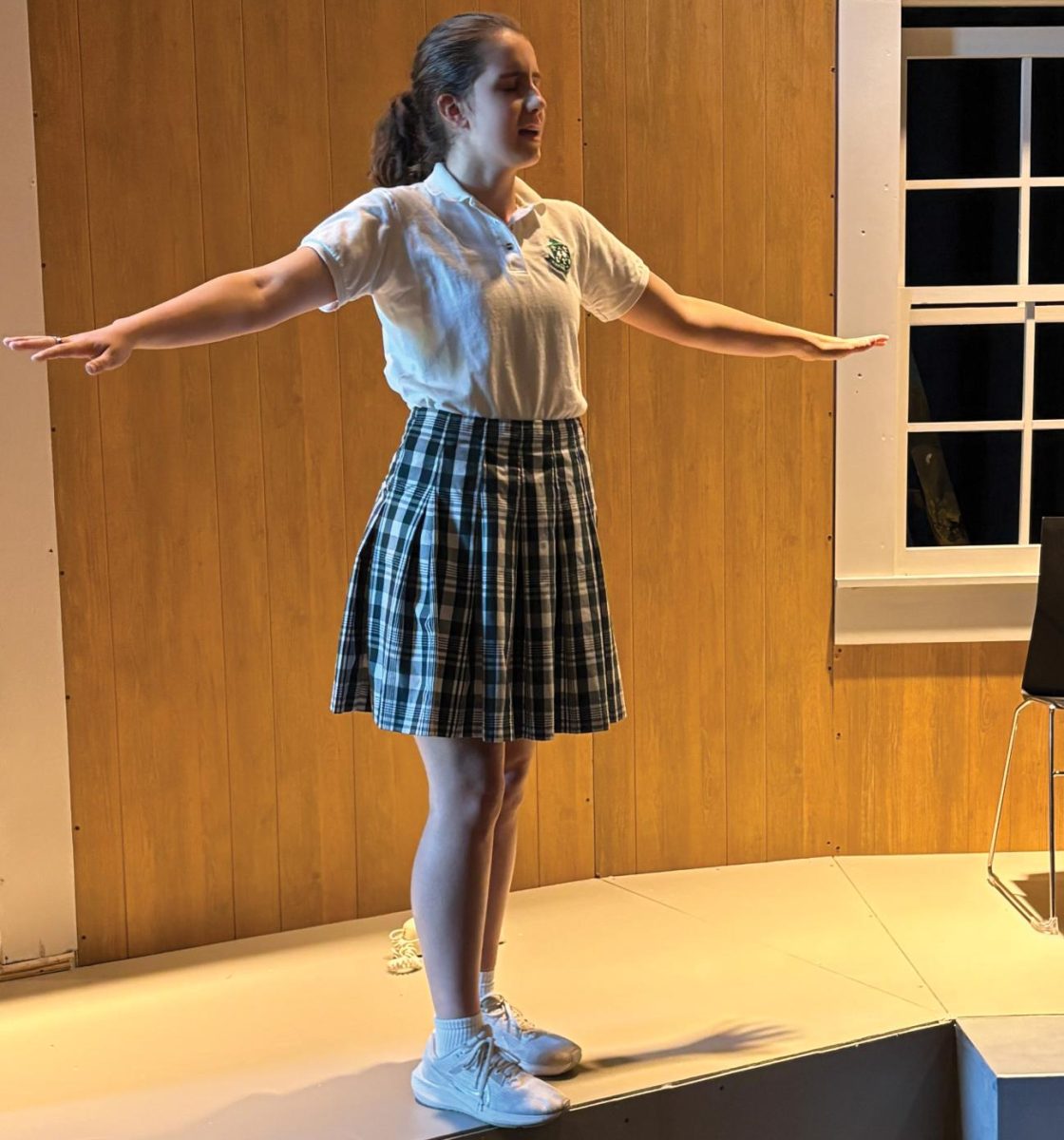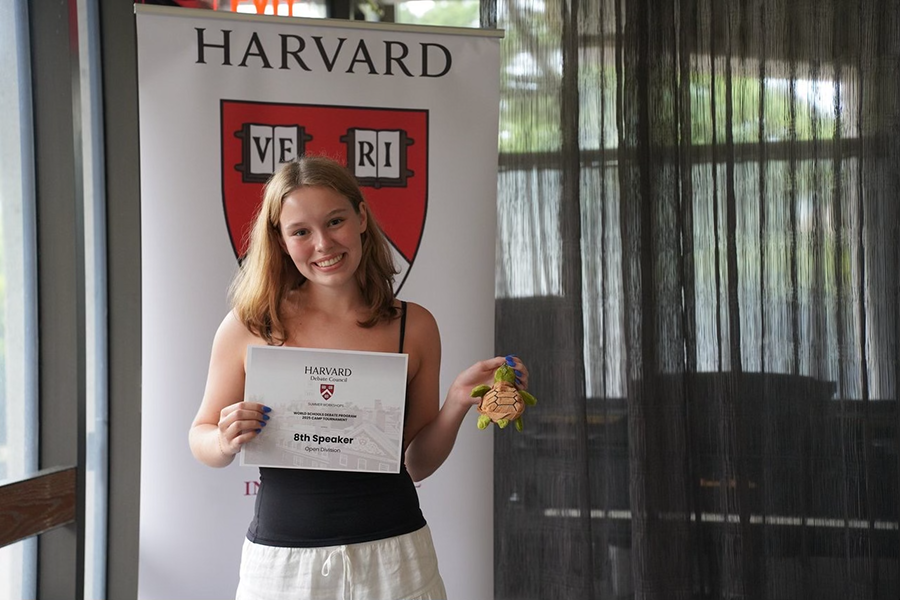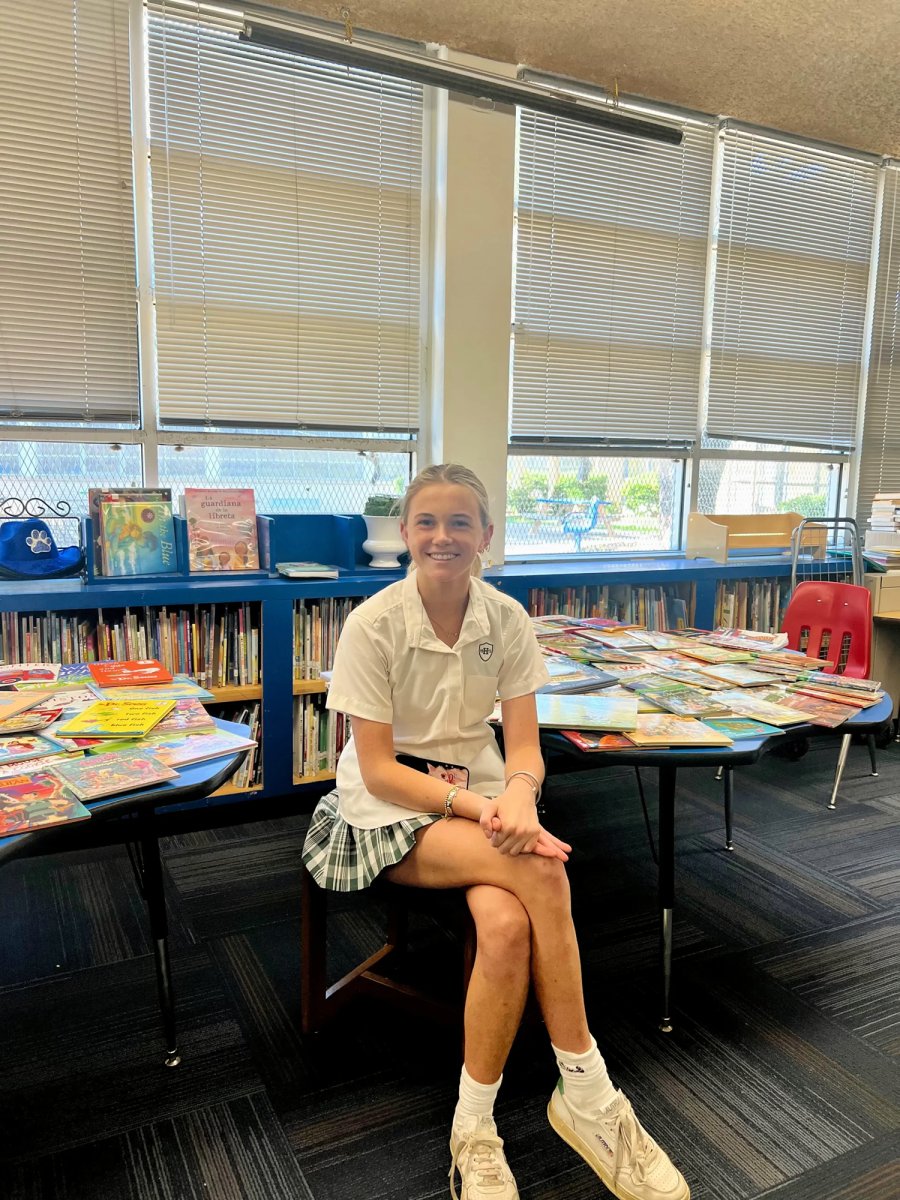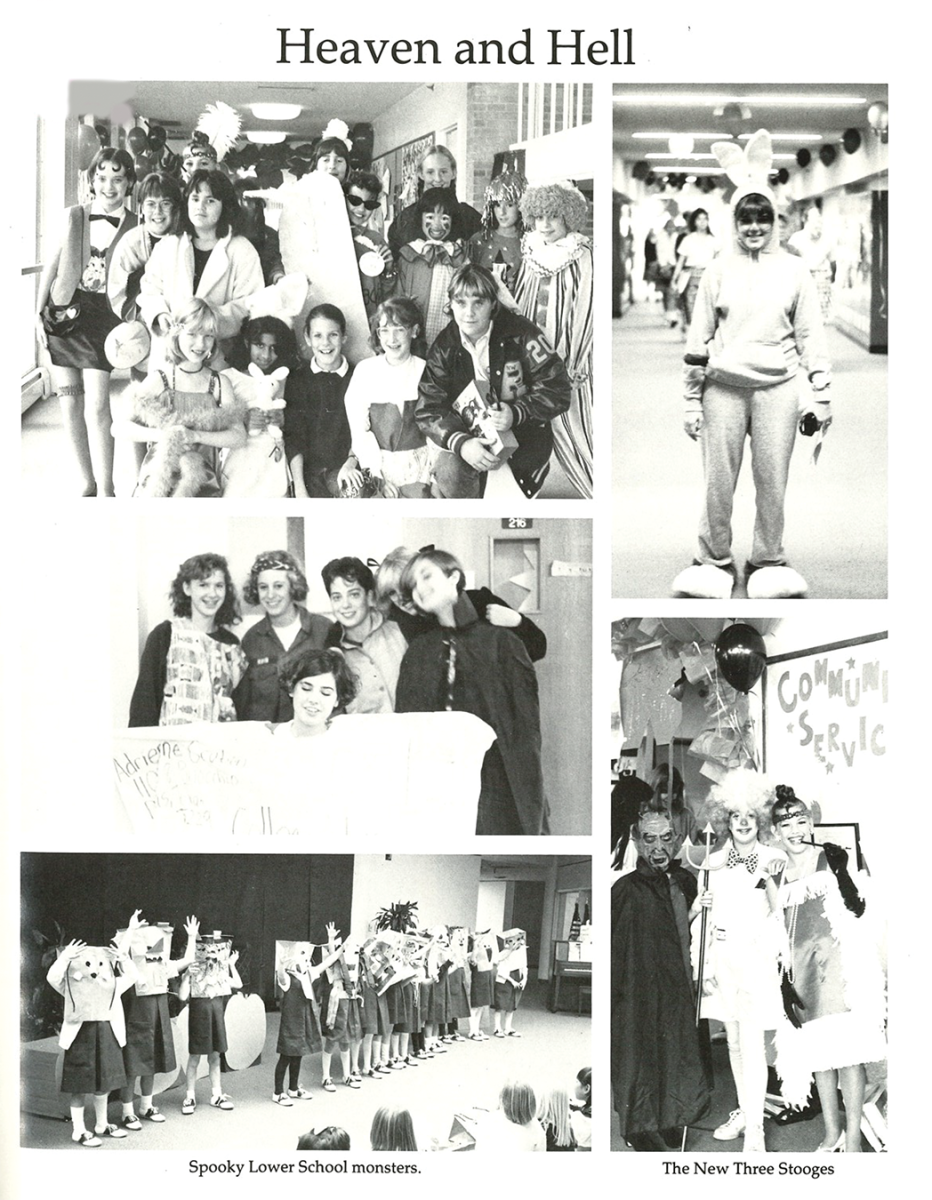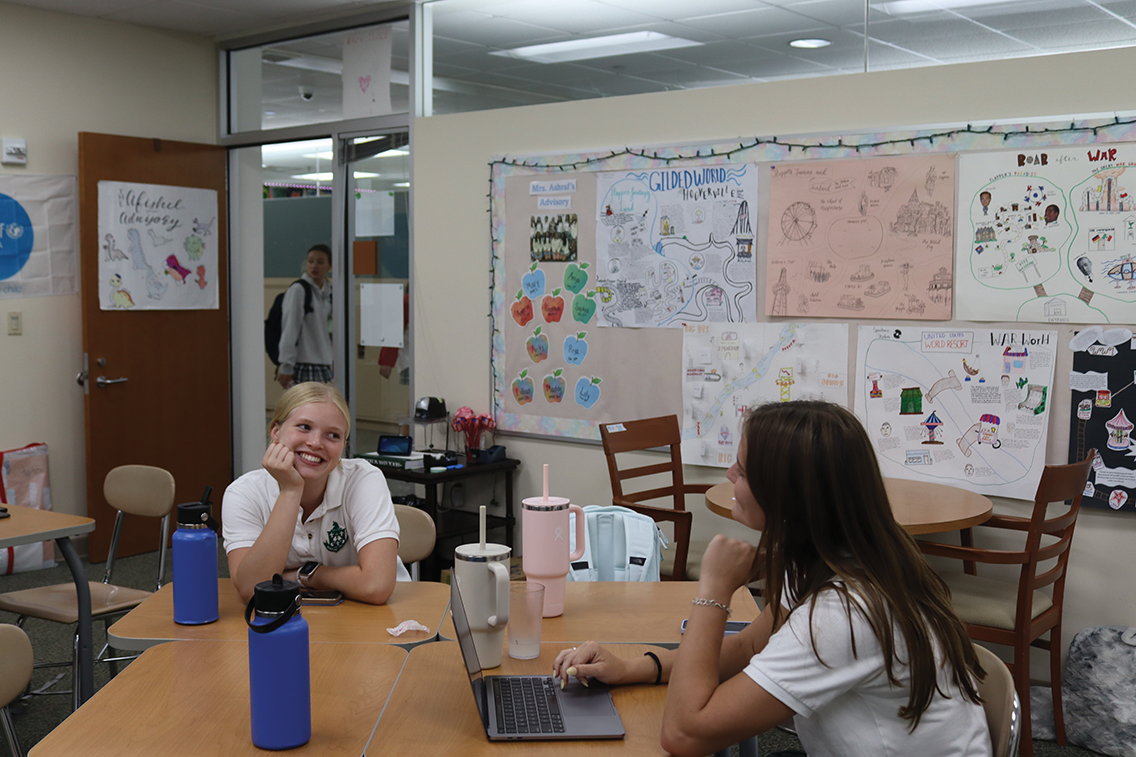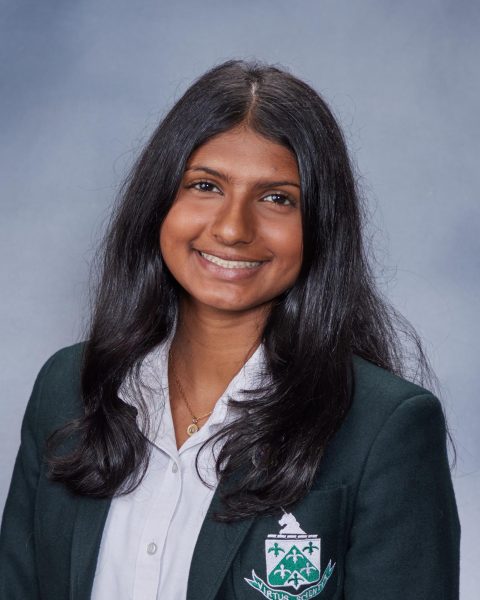“Yes, and.” These two words lay the foundation for improv, a form of live theater based on unscripted comedy. For students and faculty in the improv community, this phrase is not just a guideline to follow, but rather a mindset they apply on and off the stage.
Senior Maddy Oyakawa, co-president of Hockaday and St. Mark’s Improv, has experienced firsthand how improv has helped her gain confidence in public settings.
“I believe it has definitely helped me be able to speak better and think quicker on my feet,” Oyakawa said. “Whether in public speaking, or just in normal conversations, when you’re not really sure exactly what to say, it can help you stay confident and be able to continue without knowing exactly where you’re going.”
Entering her fourth year in the improv troupe, Oyakawa often incorporates the “yes, and” mindset into her performances. Even though improv performers may not literally say the phrase, they use the same adaptive mentality.
“If you’re able to just go up there and say things confidently, even if they sound stupid, it will just naturally be funny,” Oyakawa said.
Director of the Institute for Social Impact Melanie Robinson also performs improv. After a bouldering accident, she was motivated to take up a hobby that was less dangerous but just as exciting, and she instantly fell in love with improv. Robinson now hopes to share the benefits of improv with others.
“In improv, we each bring a brick to the scene and bring that brick to life, which helps turn it into something beautiful and complete,” Robinson said.
Robinson also applies this mindset to her role at Hockaday, from interactions with students to fellow faculty members. She has even begun planning an improv faculty workshop to share the benefits of “yes, and” in professional development.
“When people come to me in my office stuck on this one idea, sometimes we’ll take a walk or go talk to somebody else and see if they have any ideas,” Robinson said. “It’s been really refreshing that so many Hockaday students are open to new ideas.”
Robinson encourages anyone who is interested in trying out the “yes, and” mindset to join improv and try something new.
“I think the thing that makes improv feel scary is the idea that you’re supposed to be funny, but we find comedy in everyday life,” Robinson said.
In the athletic realm, Head Varsity Rowing Coach Katelin Gildersleeve uses improv to bring fun into the stressful environment of the high-intensity sport.
She often incorporates improv exercises into practices to remind rowers not to take life too seriously and to have fun with the sport.
“There’s a lot of pressure that they put on themselves, so sometimes just taking a step back and either playing a game or opening up the conversation can help them actually talk about how they’re feeling instead of keeping all of their feelings really close to their chest,” Gildersleeve said.
Gildersleeve began her improv journey in college and currently takes classes at the Dallas Comedy Club. Over the years, she has seen in herself and others how powerful the “yes, and” mindset can be.
“It’s nice to see the power of how much more we can build together when we just say ‘yes’ and lead with curiosity rather than denying or shutting down someone else’s claim in a scene,” Gildersleeve said.
Personally, Gildersleeve said improv has helped her grow as a coach and team leader.
“I’m very thankful that improv has allowed me to speak more freely and without hesitation because I think there has to be a sense of confidence or transparency that I have to lead with, and that’s how I want to lead,” Gildersleeve said.
Above all, she believes that anyone can join improv and shouldn’t fear saying “yes, and,” as that is the first step to gaining confidence and clarity.
“You just have to get over that little hump,” Gildersleeve said, “but we all have the creativity to be successful.”



